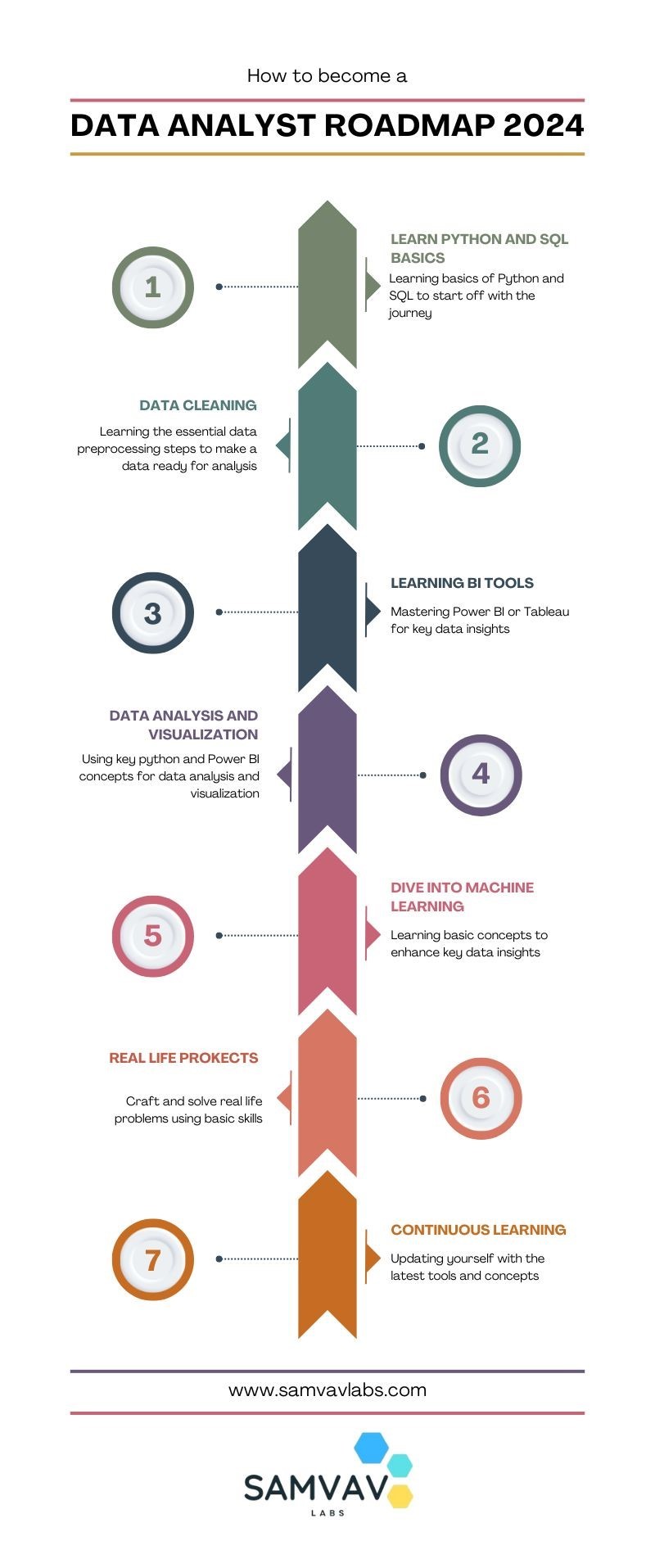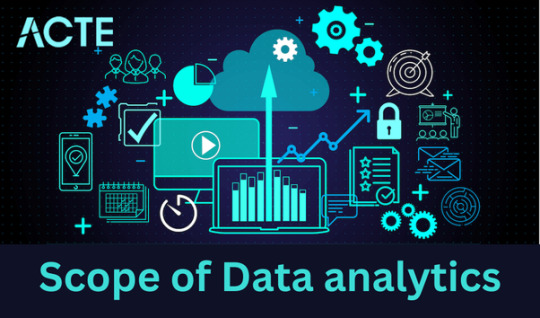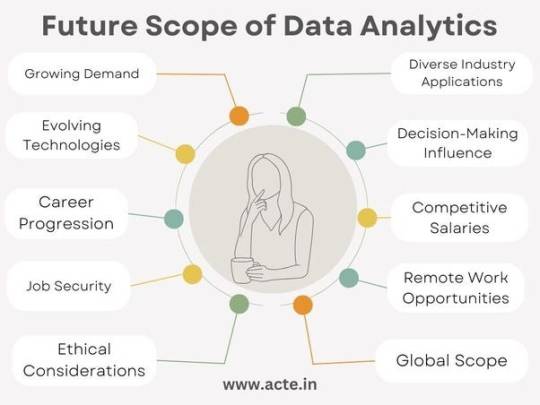#Data Analyst Course
Explore tagged Tumblr posts
Text

Elevate Your Brand, Rule the Digital Space with Cybrom Technology.
#digital marketing#Social media marketing#Data science#data analytics#data analyst course#seo#search engine optimization#google ads
5 notes
·
View notes
Text

Data Analyst Roadmap for 2024!
Cracking the Data Analyst Roadmap for 2024! Kick off your journey by mastering and delving into Python for data manipulation magic, and dazzle stakeholders with insights using PowerBi or Tableau. Don't forget, that SQL proficiency and hands-on projects refine your skillset, but never overlook the importance of effective communication and problem-solving. Are you checking off these milestones on your path to success? 📌 For more details, visit our website: https://www.samvavlabs.com . . . #DataAnalyst2024 #CareerGrowth #roadmap #DataAnalyst #samvavlabs #roadmap2024 #dataanalystroadmap #datavisualization
#business analytics#data analytics#data analyst#machinelearning#data visualization#datascience#deep learning#data analyst training#dataanalystcourseinKolkata#data analyst certification#data analyst course#data science course#business analyst
11 notes
·
View notes
Text
I’m a finance major at uni but the way I see these data analyst girlies working from home, I lowkey want to break into that. Does anyone know if it’s difficult to Segway into that path as a finance major?
#this is a girlblog#girlblogging#supremeromanticizer#shitpost#thought daughter#hit tweet#finance girl#finance#startup#business#entrepreneur#data#data analytics#data analyst jobs#data analyst course#recommendations?#US based#remote work#remote jobs#work from home#work from anywhere
1 note
·
View note
Text
Unlock diverse career opportunities with a full-time Business Analytics course. Explore roles like Business Analyst, Data Analyst, Financial Analyst, Market Analyst, and Supply Chain Analyst. Elevate your skills and secure a rewarding future.
#globsyn business school#globsynbusinessschool#globsyn#gbs#gbs kolkata#gbskolkata#pgdm in business analytics#pgdm business analytics#business analytics#business analytics courses#full time business analytics#business analyst#data analyst#data analyst course#financial analyst#market analyst#supply chain analyst
3 notes
·
View notes
Text
Exploring the World of Data Analytics: Opportunities and Beyond

Describe data analytics. Analyzing data to find useful information, patterns, and trends is known as data analytics. Businesses adore it since it aids in their improvement. It’s similar to solving problems with data.
Why is data analysis so crucial? Consider yourself in possession of a treasure map (data) and the desire to locate the treasure (insights). Your compass is data analytics.
Why it matters is as follows: It aids in your understanding of consumer behavior, market trends, and company performance.
Efficiency: You can discover areas in which your company may save both time and money.Smart decisions: When using data, you may base decisions on facts rather than educated guesswork.
Personalization: Have you ever seen how Netflix suggests shows? That is data analysis.

Future Scope of Data Analytics :
High Demand: Many businesses in different industries need data experts because they use data to make smart choices. So, the need for skilled data analysts is growing.
Various Job Fields: Data skills are useful everywhere, not just in one industry. You can work in finance, healthcare, e-commerce, marketing, or technology. This means you have many options for your career.
Tech Keeps Changing: The tools and methods for working with data keep getting better and different. It’s important to keep learning new things, but it also means you can become an expert in a special area.
Helping Decisions: Data people play a big role in helping businesses make important decisions. What you find in data can change how a company plans for the future.
Career Growth: Starting as a data analyst can lead to better and higher-paying jobs like data scientist or machine learning engineer.
Good Pay: Data analysts are paid well. As you get better at your job, you can earn even more.
Job Security: As long as companies use data, they’ll need people who understand it. So, you’ll have a stable job.
Work from Anywhere: You can often do data work from anywhere, giving you flexibility in where you live.
Ethical Data: Data privacy and being fair with data are important. People who can make sure data is used the right way are in demand.
Worldwide Opportunities: Data skills are needed all over the world, so you
can work in different countries if you want.
Careers in Data Analytics:
Data Analyst: The entry point They collect, clean, and analyze data.
Data Scientist: The Experts They use machine learning to solve complex puzzles.
Business Analyst: The bridge between data and business decisions
Big Data Engineer: They manage massive data sets using big data tools.
Healthcare Analyst: They use data to improve healthcare outcomes.
Marketing Analyst: Masters of measuring marketing success
Financial Analyst: They use data for financial strategies.
Sports Analyst: They play with data in the world of sports.
The Future of Data Analytics:
AI and machine learning: Think smarter, not harder. Automation will rule.
IoT Analytics: Connected devices will provide more data than ever.
Ethical Analytics: Data privacy will be a top concern.
Data Visualisation: Making data pretty and easy to understand will be big.

Feel free to get in touch with an ACTE institution if you want to learn more about Data Analytics because they provide certifications and possibilities for job placement. Teachers with experience can improve your learning. These services are available offline and online. Take things slowly and, if you’re interested, think about signing up for a course.
I hope I was able to effectively respond to your query. If it’s not, add it in the comments section. I still think I have a lot to learn.
Consider following me and giving this answer an upvote if you found it to be useful. This will motivate me to post more information on data analytics.
We appreciate you taking the time to read this and voting it up. Enjoy your day.
#data analytics#data analysis#data analytics course#data analyst jobs#data analyst training#data analyst certification#data analyst course
3 notes
·
View notes
Text
youtube
All About Data Science and Analytics Course by Imarticus Leaning | Data Science For Beginners
Looking to supercharge your career in Data Science and Analytics? Look no further! Explore the comprehensive Imarticus Postgraduate Program in Data Science & Analytics.
#Data Science and Analytics Course#Data Science#data analytics#data analyst course#data analyst training#Imarticus#data science course#Youtube
3 notes
·
View notes
Text
Learn how SQL data normalisation cuts redundancy, boosts data integrity, improves performance, and supports scalable design—key skills taught in any data analyst course.
0 notes
Text
Crack Business Challenges with Data – Learn in Bangalore!
Discover how data analytics is solving real-world business problems and how a data analyst course in Bangalore can help you become a part of this transformation. More info : https://evaluation.tech.blog/2024/01/18/3-business-problems-data-analytics-can-help-solve/
0 notes
Text
https://blague-courte.com/excel-as-a-database-using-power-query-for-data-wrangling-and-transformation
0 notes
Text
Top Mistakes New Data Analysts Must Avoid
The demand for skilled data analysts is on the rise, and the field continues to attract fresh talent with the promise of impactful work and promising career growth. However, the journey of a new data analyst is often filled with avoidable pitfalls. While technical skills are essential, many beginners stumble due to simple mistakes that can delay their progress or affect the quality of their work. Understanding and avoiding these common errors can significantly accelerate professional development.
1. Ignoring Business Understanding Many new data analysts dive into datasets without fully grasping the business problem they're trying to solve. Analysis should always be grounded in business objectives. Knowing the “why” behind your work helps frame the “how” and the “what,” ensuring your insights actually support decision-making. Always begin with context—who the stakeholders are, what they need, and how your findings will be used.
2. Overcomplicating Solutions There’s often a desire to impress by using complex algorithms or advanced models. But simplicity usually wins. Clear, actionable insights derived from simple methods are more valuable than intricate models that confuse stakeholders. Focus on understanding the problem and choosing the most efficient technique to solve it.
3. Skipping Data Cleaning New analysts sometimes jump into analysis without cleaning their data. This is a critical mistake. Raw data often contains missing values, duplicates, and inconsistencies. Ignoring these can lead to inaccurate results. Data cleaning may not be the most exciting part of the process, but it serves as the essential groundwork for accurate and trustworthy analysis.
4. Weak Data Validation Once a conclusion is reached, it’s easy to move on. However, it’s crucial to validate your findings. Double-check calculations, test assumptions, and consider alternative interpretations. Validating your work helps build credibility and ensures your recommendations are sound.
5. Poor Data Visualization Even great insights can be lost with poor presentation. Many new analysts use cluttered visuals or choose the wrong chart type. Effective visualizations are clean, focused, and tailored to the audience. Whether it’s a bar graph, heat map, or line chart, the goal should be clarity and communication.
6. Lack of Communication Skills A common myth is that analysts only need technical know-how. In truth, communication is key. You must be able to explain your findings in a way that stakeholders understand. Avoid jargon, and focus on key takeaways. Your value lies not only in uncovering insights but in ensuring they lead to informed decisions.
7. Not Practicing Enough Learning theory without practical application can leave gaps in understanding. Many beginners hesitate to work with real datasets or shy away from hands-on projects. But real growth happens through practice. Tackling real-world problems sharpens both technical and problem-solving skills.
If you’re just starting out or transitioning into analytics, consider enrolling in a structured learning program. A data analyst course in Jaipur, for instance, can offer guided practice and mentorship tailored to the needs of aspiring analysts.
8. Neglecting Continuous Learning Data analytics is an evolving field. Technologies, tools, and techniques constantly change. Some beginners become complacent after landing their first job, but ongoing learning is crucial. Staying updated through workshops, certifications, and project work keeps your skills sharp and relevant.
9. Overlooking Soft Skills In addition to hard skills, traits like teamwork, time management, and adaptability are essential. Analysts often collaborate across departments and face changing priorities. Being flexible, organized, and open to feedback enhances your effectiveness in any data-driven environment.
Choosing the Right Path with DataMites Institute
To build a strong foundation and avoid these early mistakes, learning under expert guidance is essential. For those seeking a reliable offline data analyst institute in Jaipur, DataMites stands out as a top-tier option for beginners and upskillers alike.
Recognized by IABAC and NASSCOM FutureSkills, DataMites Institute courses are crafted to align with international industry standards. Learners benefit from expert mentorship, practical project experience, internship programs, and robust placement assistance. This ensures that students not only understand theory but also develop real-world application skills.
DataMites Institute provides offline classroom training in major cities including Mumbai, Pune, Hyderabad, Chennai, Delhi, Coimbatore, and Ahmedabad—offering flexible and accessible learning opportunities throughout India. If you're based in Pune, DataMites Institute provides the ideal platform to master Python and excel in today’s competitive tech environment.
In Jaipur, the institute brings the same high-quality offline learning environment with an industry-aligned curriculum. Through case studies, live projects, and job-ready preparation, DataMites Institute supports learners at every stage of their journey. Whether you’re new to analytics or aiming to strengthen your skills, DataMites Institute ensures you’re equipped with everything you need to thrive.
Becoming a successful data analyst involves more than just mastering tools or passing exams—it’s about developing the right mindset and avoiding common traps. By being mindful of these mistakes and choosing a trusted learning partner like DataMites, you can confidently begin your journey in analytics and make a lasting impact in the field.
0 notes
Text
What is the role of a data analyst in a company?

In today’s data-driven world, companies are flooded with information. But raw data alone doesn’t help. It needs to be cleaned, organized, and understood.
That’s where a data analyst steps in. Many people hear the term “data analyst” and imagine someone crunching numbers all day. While numbers are part of the job, the role of a data analyst training goes far beyond spreadsheets. They turn data into clear, actionable insights that help companies make better decisions.
This article explores the role of a data analyst in a company, common challenges businesses face without one, and how data analysts solve real business problems.
Understanding the Basics of a Data Analyst's Role
A data analyst is responsible for collecting, organizing, analyzing, and interpreting data. Their main goal is to help a company make informed decisions by identifying trends, patterns, and problems. They often work closely with departments like marketing, sales, finance, and operations to help guide strategies.
Key Responsibilities
Data Collection: Gathering data from internal systems like sales databases or external sources such as customer surveys.
Data Cleaning: Removing errors, duplicates, or irrelevant data to ensure accurate analysis.
Data Analysis: Applying statistical methods or using software tools to draw insights.
Reporting: Presenting findings through dashboards, graphs, or written summaries.
Decision Support: Recommending strategies based on data-driven insights.
Why Companies Need Data Analysts
Without data analysis, businesses are often operating in the dark. They might rely on assumptions, outdated trends, or gut feelings to make decisions. This approach can be risky, especially in competitive markets.
For example, a retail company may notice a drop in sales but not know why. A data analyst would look at customer feedback, transaction data, and competitor trends to pinpoint the cause—whether it's pricing, product quality, or market shifts.
Real-World Scenario
Imagine an e-commerce company launching a new product line. The marketing team runs multiple ad campaigns but doesn’t know which ones perform best. A data analyst evaluates ad performance metrics—click-through rates, conversions, bounce rates—and identifies the most successful campaigns. This allows the company to focus its budget where it gets the best returns.
Common Problems Businesses Face Without Data Analysts
1. Poor Decision-Making
Businesses may make critical choices based on assumptions. For example, launching a product in a new market without understanding customer needs can result in losses.
2. Wasted Resources
Without data-backed planning, marketing and sales budgets can be misallocated. Companies may spend heavily on the wrong strategies or audiences.
3. Missed Opportunities
Trends often emerge from subtle shifts in data. Without someone monitoring these patterns, companies can miss opportunities for growth or innovation.
How Data Analysts Solve These Problems
1. Turning Raw Data Into Actionable Insights
Instead of giving managers complex spreadsheets, data analysts summarize key insights that directly answer business questions. For instance, “Which region had the highest sales last quarter and why?”
2. Predicting Trends and Customer Behavior
Using historical data, analysts can help predict future patterns. For example, an analyst might discover that customers tend to buy winter clothing two months earlier in colder regions—information that can guide inventory and marketing plans.
3. Optimizing Operations
From reducing delivery delays to lowering production costs, data analysts study process performance. Their findings can streamline operations and improve efficiency.
Skills and Tools a Data Analyst Uses
While the job doesn’t always require coding or advanced math, data analysts typically use a few key tools:
Spreadsheets (e.g., Excel): For basic data handling.
SQL (Structured Query Language): To retrieve data from databases.
Data Visualization Tools (e.g., Tableau, Power BI): For creating easy-to-understand dashboards.
Statistical Tools (e.g., Python, R): For more complex analyses.
They also need strong communication skills to explain technical findings to non-technical teams.
How Data Analysts Support Different Departments
Marketing
They help track campaign performance, understand customer segments, and determine which products perform well in which markets.
Sales
Data analysts can identify high-value customers, sales patterns, and seasonal buying behavior to help set realistic sales targets.
Finance
They assist in budgeting, forecasting, and identifying financial risks or irregularities.
HR
Analysts can study employee turnover, satisfaction surveys, and hiring trends to improve workplace policies.
Antithesis: Is Data Analysis Always Necessary?
Some argue that experience and industry intuition should drive decisions. While intuition is valuable, it can be biased. Data supports or challenges assumptions with evidence. However, relying solely on data without context can also mislead. For instance, a spike in website traffic may look good, but if it's due to accidental clicks or bots, it has no real value.
The best approach is a balance—pairing human judgment with data analysis.
The Evolution of the Role
The data analyst role is evolving. In the past, analysts were mainly seen as report creators. Today, they are strategic partners in planning and growth. Many companies now involve analysts early in the decision-making process, not just after-the-fact reporting.
Additionally, the lines between data analysts, data scientists, and business analysts are blurring. While data scientists focus more on advanced machine learning and predictions, data analysts specialize in understanding past and present trends to inform future decisions.
How to Work Effectively with a Data Analyst
For companies to benefit fully, team collaboration is key. Business leaders should:
Clearly define goals and questions they want answered.
Ensure data analysts have access to quality, up-to-date data.
Include analysts in strategy discussions, not just post-analysis.
Meanwhile, data analysts should communicate clearly, use visuals effectively, and align their work with business objectives.
Conclusion
The role of a data analyst in a company is more than just number-crunching—it’s about storytelling with data, solving problems, and enabling smarter decisions. By transforming raw data into meaningful insights, data analysts play a vital role in the success and growth of a business.
In an era where competition is tight and margins are narrow, data analysts help ensure that every decision is informed, strategic, and effective.
0 notes
Text
Accelerate Your Career with the Leading Data Analytics Program in Kochi by Techmindz
In an era driven by data, the ability to interpret, visualize, and act on insights has become one of the most sought-after skills in the professional world. From business strategy to marketing and product development, data powers every major decision. If you're looking to become a valuable part of this data-driven future, enrolling in a Data Analytics Program in Kochi could be your smartest career move—and Techmindz is the institute to get you there.
📊 Why Data Analytics?
The global demand for data analysts and data scientists has skyrocketed across industries. Organizations, from startups to multinational giants, are constantly seeking professionals who can transform raw data into actionable intelligence. With the right training, you can land roles such as:
Data Analyst
Business Intelligence Analyst
Data Engineer
Visualization Expert
Decision Scientist
And that’s exactly where Techmindz bridges the gap—offering practical training tailored to today’s job market.
🎯 What Makes Techmindz the Go-To Choice in Kochi?
Located in the heart of Infopark, Kochi, Techmindz is more than just an educational institute—it's a technology ecosystem that connects you directly to the IT industry.
💡 Key Highlights of Our Data Analytics Program:
Industry-Aligned Curriculum: Covering Excel, SQL, Python, Tableau, Power BI, Machine Learning fundamentals, and real-world case studies.
Hands-on Projects: Work on live datasets to build dashboards, reports, and predictive models.
Corporate Mentors: Learn from experienced professionals actively working in analytics roles across sectors.
Job Readiness: Resume building, mock interviews, and placement support to help you transition smoothly into the workforce.
Flexible Formats: On-campus and online training modes available for working professionals and students.
👨🎓 Who Can Enroll?
Whether you're a student, working professional, or someone looking to upskill, our Data Analytics Program in Kochi is designed to meet diverse learning needs.
Ideal for:
Graduates in engineering, commerce, science, or business
IT professionals seeking a role shift
Entrepreneurs and business owners looking to leverage data
Non-tech professionals aiming to build future-proof careers
No coding background? No problem. Our step-by-step approach ensures everyone keeps pace.
🏆 Why Kochi is Emerging as a Data Hub
Kochi is quickly becoming a thriving hub for IT and analytics in Kerala, with tech parks, startups, and global firms setting up operations. Choosing a data analytics course in Kochi not only gives you access to quality training but also improves your chances of landing internships and jobs in the local industry.
🚀 Start Your Data Career with Techmindz
Data isn’t just the future—it’s the present. Equip yourself with in-demand analytics skills that employers are actively searching for. With our Data Analytics Program in Kochi, you’re not just learning—you’re preparing for real-world success.
📞 Contact us today for a free consultation or visit our center at Infopark, Kochi. Let’s turn your data curiosity into a high-growth career.
https://www.techmindz.com/data-science/
0 notes
Text

Why Digital Marketing Is the Career of the Future
In today’s fast-paced, tech-driven world, digital marketing has emerged as one of the most in-demand and future-proof careers. As businesses across the globe continue to embrace online platforms, the need for digital marketing professionals has skyrocketed. Whether you're a student exploring career options or a professional considering a career change, here's why a digital marketing career might just be the best decision for your future.
1. The Digital Economy Is Booming
The global shift toward digitalization has revolutionized the way businesses interact with customers. From startups to multinational corporations, every company now needs an online presence. This creates a constant demand for digital marketers who can help drive traffic, increase sales, and build brand awareness. The future of marketing is undoubtedly digital.
2. A Wide Range of Career Opportunities
One of the most attractive aspects of a career in digital marketing is the diversity of roles available. You can specialize in areas such as:
Search Engine Optimization (SEO)
Social Media Marketing
Content Marketing
Email Marketing
Pay-Per-Click (PPC) Advertising
Affiliate Marketing
Analytics and Data-Driven Marketing
Each of these niches offers unique opportunities for growth and specialization, making digital marketing a versatile and exciting career choice.
3. High Demand, Low Supply
There’s a significant gap between the number of online marketing jobs available and the professionals qualified to fill them. This supply-demand gap gives digital marketers an edge in terms of job security and salary potential. According to industry reports, the demand for digital marketing skills will only continue to grow in the coming years.
4. Flexibility and Remote Work Opportunities
Digital marketing is one of the few fields that offers genuine flexibility. Many roles can be done remotely, making it ideal for freelancers, digital nomads, and those seeking a better work-life balance. This flexibility also allows marketers to work with international clients and diverse industries without being tied to a single location.
5. Continuous Learning and Innovation
If you enjoy learning and adapting to new technologies, digital marketing is the perfect fit. The field is always evolving with new tools, platforms, and trends like AI, automation, voice search, and influencer marketing. This ensures that your work never gets boring and that you stay ahead of the curve in your professional development.
6. Entrepreneurial Opportunities
Not only does digital marketing open the door to a successful job market, but it also provides the skills needed to launch your own business or side hustle. Many entrepreneurs use digital marketing to promote their products, build personal brands, or run successful e-commerce stores. Understanding online marketing gives you a competitive edge in any business venture.
7. Accessible and Affordable Learning Paths
Unlike traditional careers that require expensive degrees, digital marketing skills can be learned through online courses, bootcamps, and certifications. With dedication and hands-on practice, you can build a strong portfolio and start landing clients or job offers within months.
Final Thoughts
The future of marketing is digital, and the time to start building your digital marketing career is now. With high demand, diverse roles, flexible work options, and endless growth potential, it’s easy to see why more and more people are choosing to enter this dynamic industry.
Whether you want to work for a top agency, build your freelance business, or grow your own brand, digital marketing gives you the tools and opportunities to succeed in the digital age.
#digital marketing#data analyst course#data analyst training#future of marketing#skills for digital marketing#seo#ppc#socialmediamarketing
0 notes
Text
From Beginner to Pro Best Data Analyst Course in Delhi with 100% Placement Support

In a world where every click, swipe, and purchase generates valuable data, the demand for professionals who can analyze and interpret that data is skyrocketing. From multinational corporations to startups, everyone is looking for data analysts who can provide actionable insights to drive strategic decisions.
If you're in Delhi—or planning to move here—this is the perfect time to enroll in the best data analyst course in Delhi and jumpstart a career in one of the most sought-after domains globally.
Why Choose a Data Analyst Course in Delhi?
Delhi is not only India’s educational hub but also an emerging center for tech innovation and digital transformation. Choosing a data analyst course in this city gives you access to:
✅ World-Class Institutions
Premier institutes and training centers in Delhi offer industry-oriented curriculum and certifications that hold weight across the globe.
✅ Strategic Job Location
Delhi NCR is home to thousands of companies, including tech giants, consulting firms, and MNCs. Completing a data analyst course here gives you a head-start with placement and internship opportunities.
✅ Affordable Yet High-Quality Learning
Compared to international programs, Delhi offers affordable courses without compromising on content quality or placement support.
✅ Hybrid Learning Options
Many institutes offer a mix of online and offline classes, letting you learn at your own pace.
What Makes It the Best Data Analyst Course in Delhi?
While there are many options available, the best data analyst course in delhi typically includes:
📘 Comprehensive Curriculum
Fundamentals of Data Analysis
SQL & Databases
Excel for Business Analytics
Python & R Programming
Data Visualization using Power BI/Tableau
Machine Learning Basics
Real-World Business Case Studies
👨🏫 Industry-Trained Faculty
Courses are taught by professionals who’ve worked with companies like Google, IBM, Accenture, and more—offering students insights beyond textbooks.
🧑💻 Live Projects & Internship Support
Hands-on experience with live projects builds confidence and job-readiness.
🎓 Certification & Placement Assistance
Courses often include resume-building sessions, interview prep, and guaranteed placement assistance in top organizations.
Top Benefits of Enrolling in the Best Data Analyst Course in Delhi
1. High-Paying Career Options
Starting salaries for certified data analysts in Delhi range from ₹4–8 LPA, with mid-senior professionals earning ₹12–20 LPA+.
2. Diverse Job Roles
After completion, you can explore roles such as:
Data Analyst
Business Intelligence Analyst
Data Scientist (with advanced skills)
Marketing Analyst
Financial Analyst
Product Analyst
3. In-Demand Skills
Learn tools and platforms actively used in companies today—making you job-ready from day one.
4. Career Flexibility
Whether you're a fresh graduate or a working professional looking to switch, the flexibility of the course structure allows anyone to join and grow.
5. Real-Time Industry Exposure
Regular webinars, guest lectures, and alumni mentorship help you stay updated on industry trends.
Who Should Join This Course?
This course is ideal for:
📌 Graduates in any discipline (especially STEM, Commerce, Economics)
📌 Working professionals looking to upskill or switch careers
📌 Entrepreneurs aiming to make data-backed business decisions
📌 Freelancers or consultants wanting to offer analytics services
Student Success Stories
Ankita Sharma, a commerce graduate, says: “After completing the best data analyst course in Delhi, I landed a job with an e-commerce firm in just 3 months. The practical exposure and career guidance were game-changing!”
Rohit Mehra, ex-sales executive: “The transition to data analytics seemed daunting, but the structured course and real projects helped me gain confidence. I now work as a Business Analyst at a leading fintech company.”
How to Choose the Right Course Provider in Delhi
Here are a few signs you're looking at a top-tier program:
✅ Real student reviews and success stories
✅ Transparent course structure and pricing
✅ Up-to-date syllabus aligned with market demand
✅ Career services including mock interviews and placement help
✅ Free workshops or trial classes
Conclusion: Invest in Your Career Today
Choosing the best data analyst course in delhi isn’t just about gaining a certificate—it's about building a career that is future-proof, rewarding, and full of growth opportunities. Whether you're just starting out or looking to pivot your career, now is the time to skill up and stand out.
0 notes